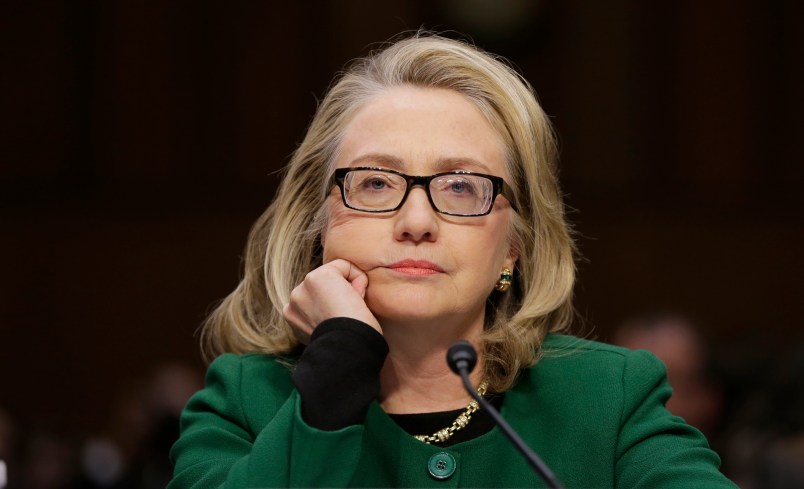In her forthcoming memoir, former Secretary of State Hillary Clinton slams critics who lashed out at her for not speaking to the American people about the Benghazi attacks through Sunday TV shows.
Politico obtained a chapter of Clinton’s new book, “Hard Choices,” that deals at length with the 2012 attacks in Libya and published excerpts on Friday. In the chapter, Clinton responded strongly to those who “fixate on the question of why I didn’t go on TV that morning,” writing that to those detractors, an appearance on Sunday shows was “the equivalent of jury duty, where one has to have a compelling reason to get out of it.”
“I don’t see appearing on Sunday-morning television as any more of a responsibility than appearing on late-night TV,” she wrote, as quoted by Politico. “Only in Washington is the definition of talking to Americans confined to 9 a.m. on Sunday mornings.”
Clinton also offered a full-throated defense of National Security Adviser Susan Rice’s disputed talking points about the attacks. Rice, who was the U.S. ambassador to the U.N. at the time of the attacks, was heavily criticized by Republicans for going on TV just days afterward and saying the attackers were motivated by an anti-Islamic video.
“Susan stated what the intelligence community believed, rightly or wrongly, at the time,” Clinton wrote, as quoted by Politico. “That was the best she or anyone could do. Every step of the way, whenever something new was learned, it was quickly shared with Congress and the American people. There is a difference between getting something wrong, and committing wrong. A big difference that some have blurred to the point of casting those who made a mistake as intentionally deceitful.”
Read more from the Benghazi chapter of Clinton’s forthcoming memoir here.







Dammite, I starteted the Beghazi drinkin game toooo early, and nowww I can’t ppooost any thinnngggg…
That’s about as close to Hillary pulling a Cheney (“Go fuck yourself.”) as you’re ever going to see. That said, she’s going to get called on it the next time she goes on a chat show – which she’s going to be doing very soon now.
“…There is a difference between getting something wrong, and committing wrong…”
Then there’s Republican Congressional investigations which are usually both.
Not unless going on a talk show is relevant to a particular crisis / issue with which she is currently engaged. And that won’t be true until she holds office again.
"Only in Washington is the definition of talking to Americans confined to 9 a.m. on Sunday mornings.”
Burrrrrnnnnn